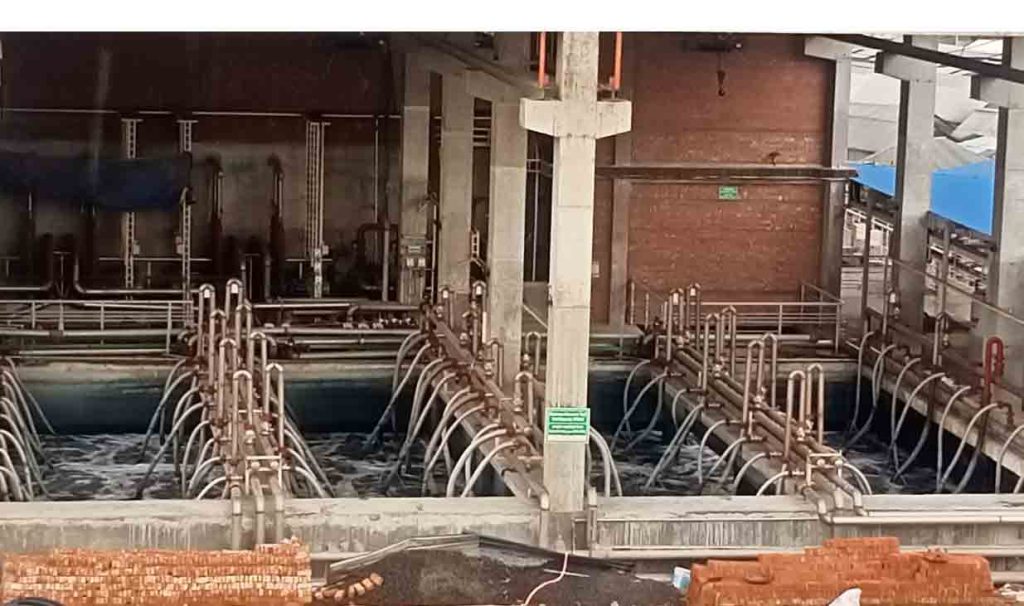Sewage Treatment Plant (STP) Manufacturer in Bangladesh 2023
Bangladesh, a nation teeming with life and vibrant culture, faces a critical challenge: effectively managing its waste. This is where sewage treatment plant (STP) come in, which play an important role in protecting public health and environmental well-being.

What is a Sewage Treatment Plant (STP)?
An STP is a facility that treats wastewater from homes, businesses, and industries before it is discharged into rivers, lakes, or oceans. The treatment process removes harmful contaminants and pathogens, making the water safer for the environment and public health.
Why are STPs important in Bangladesh?
- Public health protection: Untreated sewage can contain disease-causing organisms and STPs help prevent outbreaks.
- Environmental protection: STP prevents pollution of rivers, lakes and oceans, protecting aquatic life and ecosystems.
- Water Conservation: Treated wastewater can be reused for irrigation and other purposes, conserving freshwater resources.
- Economic benefits: STP creates jobs and attracts businesses, boosting the economy.
Wastewater Treatment Plant in Bangladesh
Bangladesh’s growing population and rapid industrialization require effective wastewater management. Wastewater Treatment Plants (WWTP) play an important role in protecting public health and protecting the environment by treating wastewater before it contaminates waterways.
Type of Sewage Treatment Plant
- Activated Sludge Process (ASP): This widely used biological treatment method efficiently removes organic matter.
- Membrane Bioreactor (MBR): By combining biological treatment with membrane filtration, MBR technology provides high-quality effluent treatment, ideal for stringent requirements.
- Trickling filters: A cost-effective option for small communities, using biological films to decompose organic pollutants.
- Package STP: Compact and easily deployable, these solutions are suitable for small and medium-sized businesses.
Technological Advances in STP
- Automation and Control Systems: Increased efficiency and lower operational costs are achieved through automation and control systems.
- Energy-efficient technology: Reducing energy consumption and environmental impact is a key focus for modern STPs.
- Waste heat recovery: Using the heat generated during the treatment process for other purposes contributes to energy efficiency.
- Membrane technology: Providing high-quality waste for reuse and resource recovery, membrane technology improves STP capacity.
STP Plant Cost depending on several factors
- Size and capacity: Larger STPs with higher capacity will naturally be more expensive than smaller ones.
- Types of technology: Different technologies, such as activated sludge processes (ASP), membrane bioreactors (MBR), and trickling filters, have different costs.
- Manufacturers and Brands: Reputed brands and manufacturers may charge a premium for their STPs.
- Installation and Commissioning: Installation cost may vary depending on project complexity and location.
General range of STP prices in Bangladesh
- Small-scale STP (up to 100 cubic meters per day): ৳100,000 – ৳500,000
- Medium size STP (100-1,000 cubic meters per day): ৳500,000 – ৳10,000,000
- Large scale STP (more than 1,000 cubic meters per day): ৳10,000,000 and above
What are the different types of STPs available in Bangladesh?
- Activated Sludge Process (ASP): Widely used, efficient for removal of organic matter.
- Membrane Bioreactor (MBR): Ideal for high-quality waste, stringent requirements.
- Trickling Filters: Cost-Effective Alternatives for Small Communities.
- Package STP: Compact and easily deployable, suitable for small and medium-sized businesses.
